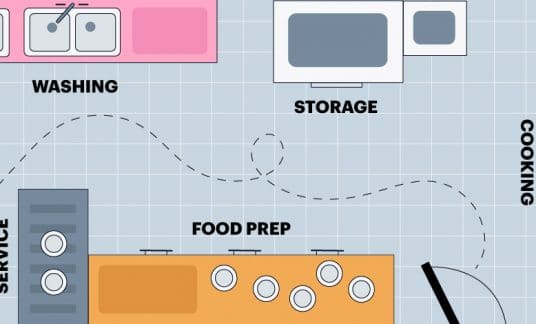There’s no wrong time to review your budget, organize your documents and uncover business tax-saving strategies. But the earlier you start, then the easier it is when tax time rolls around. Discover how to save money on taxes for small companies with this guide.
Small Business Tax Strategies to Consider
Regardless of the size of your company, small business tax strategies can save you money all year long. Before implementing any changes, it’s best to talk with a financial advisor who is current on the latest tax law changes. Doing so helps you understand your options for maximizing your tax savings.
1. Invest in Tax-Deferred Retirement Plans
Pre-tax retirement plans are a fantastic way to reduce your tax burden. Entrepreneurs turn to retirement plans to save for the future and stay within a certain tax bracket.
For success as a small business tax strategy, it’s essential to do your research, talk with a professional and compare your options. The four types of plans for self-employed individuals include:
- One-Participant 401(k). This plan is also called a solo 401(k), solo-k, uni-k or individual 401(k) and is used by sole business owners without employees other than a spouse.
- SEP IRA. This individual retirement account (IRA) is also known as a simplified employee pension. It allows you to contribute to your savings and to that of employees.
- SIMPLE IRA. This plan is called the savings incentive match plan for employees and is an inexpensive option for small businesses with fewer than 100 employees.
- Keogh plan. Also called an HR 10 plan or a qualified or profit-sharing plan, the Keogh plan is complex to set up but offers additional tax savings if the other programs are not working for you.
2. Give Christmas Gifts or Other Awards to Staff
The IRS calls gifts and awards De Minimis fringe benefits. You can deduct up to $25 per employee as tangible property without being taxed for extra employee compensation. Tangible property may include food gifts, flowers or other inexpensive items. But, if you give your team member a gift card, then you must count that money as part of their income.
You can also deduct up to $400 in total for various awards of tangible property given throughout the year. For example, you can deduct the car emergency kit that you awarded to the winner of your annual safety program. Again, specific rules define this type of award, so be aware of the limitations of this business tax-saving strategy.
3. Boost Your Employee Benefits Program
For business owners with employees, benefit programs can get pretty expensive. However, providing employee benefits can also create tax savings for small businesses. The Internal Revenue Service (IRS) allows deductions for certain fringe benefits, such as:
- Health plans
- Sick and vacation pay
- Accident coverage
- Life insurance coverage
- Employee meal programs
- Dependent care assistance
4. Stock Up on Supplies
To use this small business tax strategy to your advantage, it’s essential to consider which year you’ll see a higher benefit. For example, if you know you’re purchasing new equipment with bigger deductions next year without a significant increase in income, then stock up on business supplies to reduce this year’s tax burden.
5. Buy Equipment or Improve Property Before the Year Ends
Whether you need a vehicle or a new air conditioner, purchasing it before the year ends can provide extra tax savings for small businesses. Traditionally, you’d claim an asset’s depreciation over several years. But now, owners can use one or both of the following methods following the IRS rules and limitations for depreciation and expensing.
- Section 179 deduction. If your taxable income is greater than the expense, then use this rule first. It allows you to deduct up to $1 million of qualified property in one year, rather than depreciating it over time.
- Bonus depreciation. Previously 50% of an asset could be deducted, whereas now it’s 100%. If the expense is higher than your taxable income, then you should use this rule.
6. Donate Unused Inventory for Extra Tax Savings
If your business is an S corporation, partnership, limited liability company (LLC) or sole proprietorship, then donations of unused inventory are a straight cost deduction. This type of deduction allows you to deduct 100% of the fair market value (FMV). So, if your retail shop sells baby diapers and you purchase the product for $8 per package and donate that package, you can claim an $8 deduction.
However, according to Section 170 ( e )(3) of the Internal Revenue Code, C corporations may deduct the FMW plus half of the difference between the cost and FMW. If you buy diapers for $8 per package and price it for sale at $12.50, then you can claim a $10.25 deduction for the donation. The formula looks like this:
- $12.50 (cost) – $8 (FMW) = $4.50
- $4.50 / 2 = $2.25
- $8 + $2.25 = $10.25 (your deduction)
7. Prepay Your Expenses
If you have an excess budget to spend down or want to avoid a higher tax burden this year, then prepay expenses ahead of time. For example, you may pay for contract services like marketing or copywriting in full by December 31st but not receive the deliverables until February of the new year.
8. Research Product Development
Eligible small companies can apply part or all of their research credit against their payroll tax liability. This differs from previous years, where the amount only applied to your income tax liability. A certified public accountant (CPA) can review your information and help you determine which route is a better business tax-saving strategy.
9. Hire Family Members
Hiring your child or spouse may work to your advantage if your company is structured as a partnership or sole proprietorship. When you hire an employee, then you pay employment taxes.
- Federal income tax withholding
- Federal Insurance Contributions Act (FICA) taxes include Social Security and Medicare
- Federal Unemployment Tax Act (FUTA) is 6% of the first $7,000 of employee wages
However, sole proprietorships and partnerships that employ their child don’t need to pay FICA or FUTA taxes. If you hire a spouse, then you’ll pay FICA but not FUTA. The IRS offers further guidance on this business tax-saving tip.
10. Use Independent Contractors
For a small business, independent contractors are an excellent way to get your work done without the extra expenses of hiring an employee. Before going this route, you’ll want to review how 1099 and W2 employees differ and understand the tax implications of both.
11. Attend a Tradeshow or Convention
Work-related education expenses may lower your tax bill. You can deduct the amount of convention, workshop or tradeshow along with any related travel expenses. Review your tax liability and see if a reduction in your tax liability could offset the cost of professional development.

How to Save Money on Taxes for Small Business
Along with targeted strategies, you can use these business tax-savings tips to ensure that you’re locating and documenting all potential deductions.
12. Devise a Thorough Recordkeeping Process
Business owners who don’t track every detail miss tax savings from lost receipts. Or if faced with an audit, then a lack of a paper trail can lead entrepreneurs to owe even more in taxes. Develop a recordkeeping process following IRS guidance that lays out appropriate methods and responsibilities.
- Write important details on the back of the actual receipt (like the purpose of the meal or purchase).
- Track assets purchased, sold or otherwise disposed of, including how you use the asset.
13. Use an Accounting or Finance App
The best business tax-saving tip is to use software or apps to organize your finances. There are free accounting software programs that allow you to invoice, track mileage, pay quarterly taxes and generate year-end reports. Other options include business finance apps for easier expense tracking and account management.
14. Meet Your Tax Deadlines
Mark important tax and payment deadlines, such as the dates for filing your taxes, asking for an extension or paying your tax bill. Otherwise, you may face interest charges and late fees.
15. Get Help From a Knowledgable Financial Advisor
While it can be tempting to save money by doing your taxes or accounting yourself, you may miss some tax savings for small businesses or not understand IRS rules for deductions. There are a variety of professionals that help business owners, such as a bookkeeper, accountant or CPA. Many entrepreneurs prefer using a certified public accountant because these individuals can represent you during conversations with the IRS.
16. Account for All Business Expenses
Review your list of common small business expenses, then take action to account for every payment. For example, if you use your personal cell phone for work purposes, then that’s a deduction. However, you can only take this deduction if you get itemized bills where you can note which calls were for business and what type of business was conducted.
Other tax write-offs and deductions can significantly reduce your tax liability, such as travel expenses, bad debts and broken equipment. However, new changes may limit amounts for business-related meals.
Reduce Tax Liabilities With Business Tax-Saving Tips
While taxes are a necessary part of doing business, you can avoid major issues, like an IRS audit, by using appropriate small business tax strategies. Once you’ve set up a process for recording and tracking income and expenses, then it’s easier to take advantage of these tax-saving tips.











